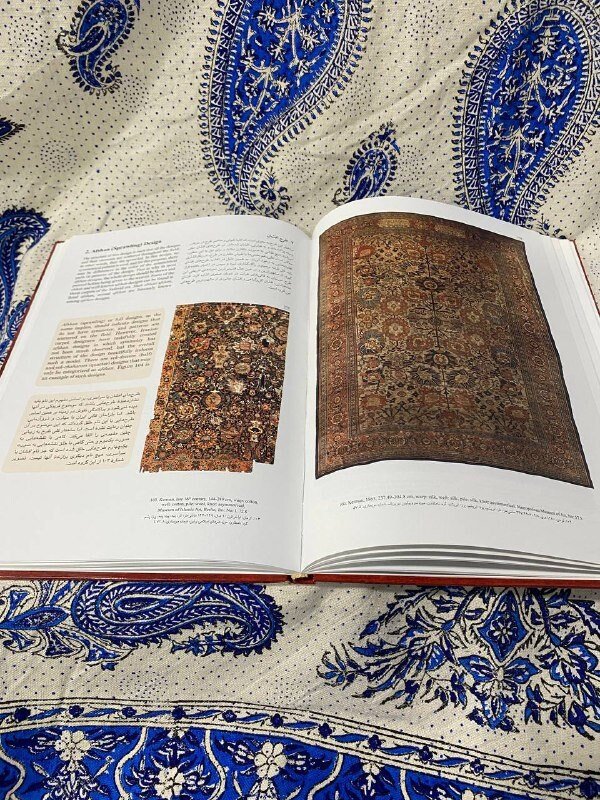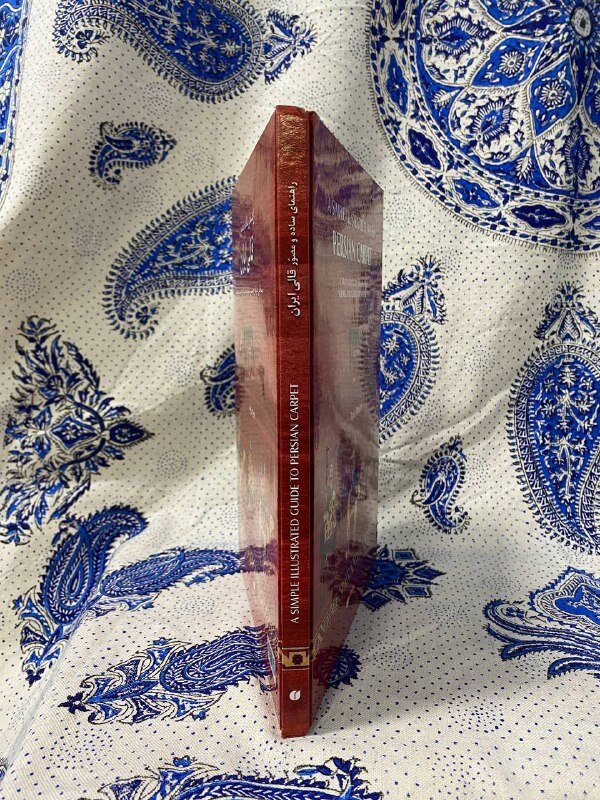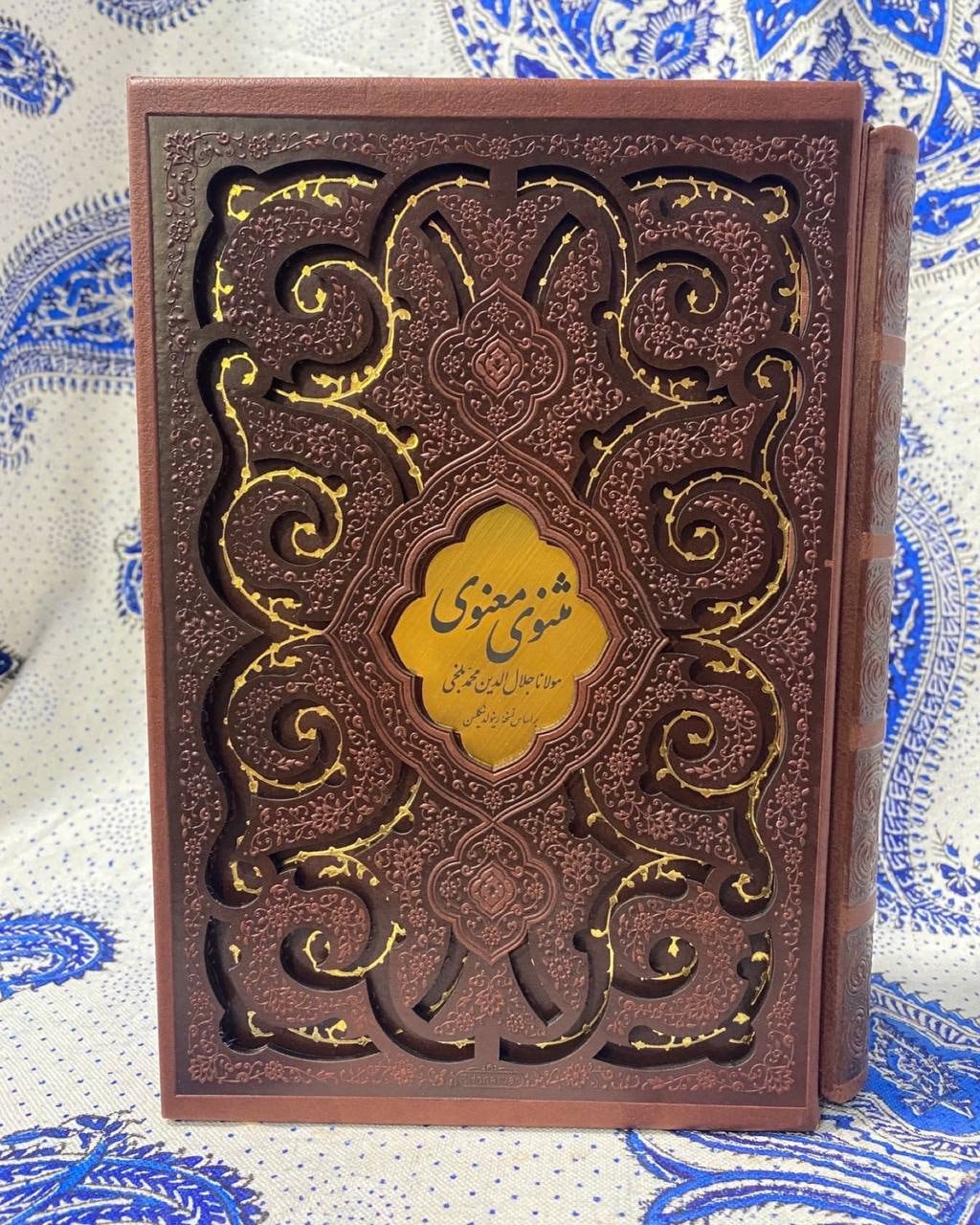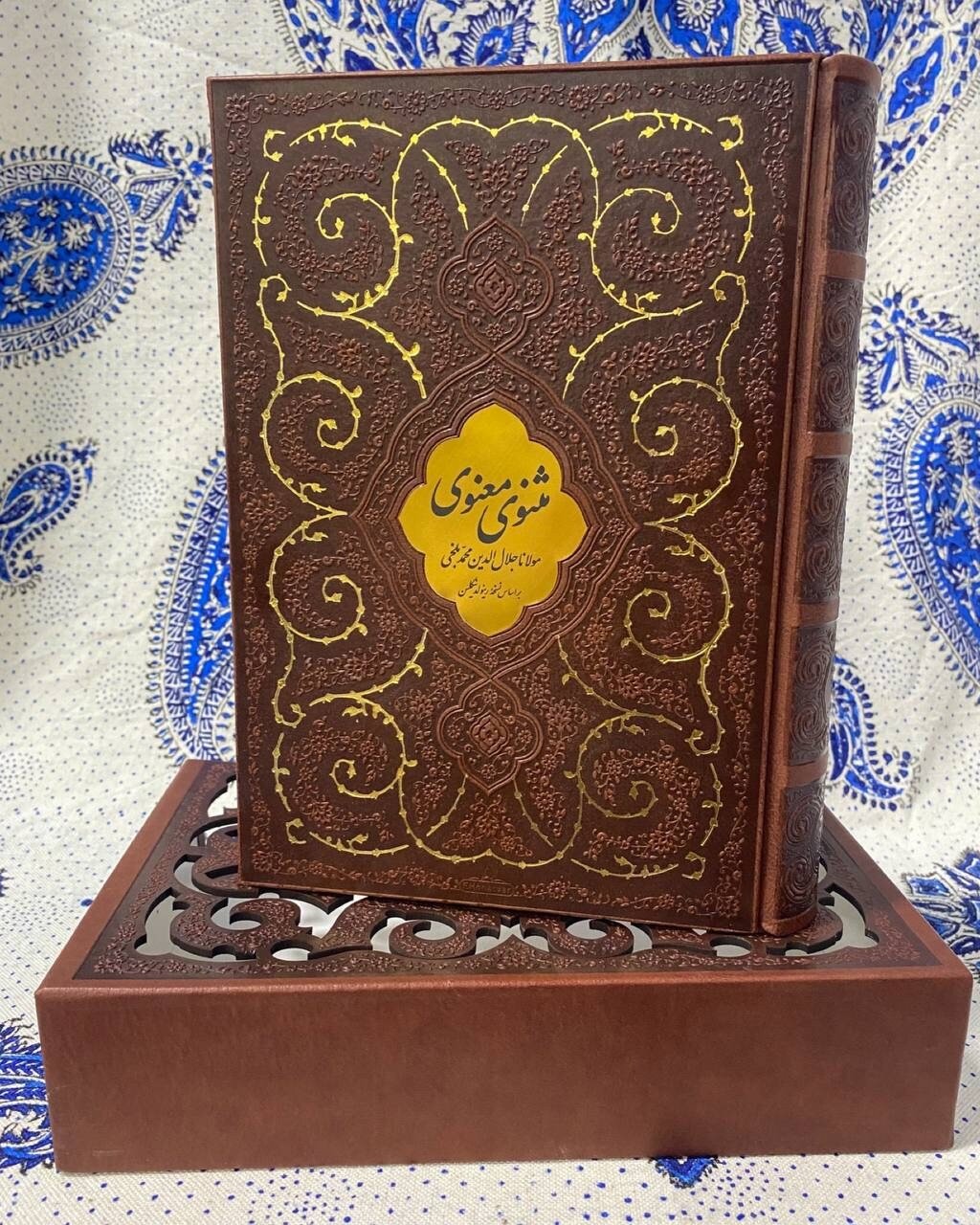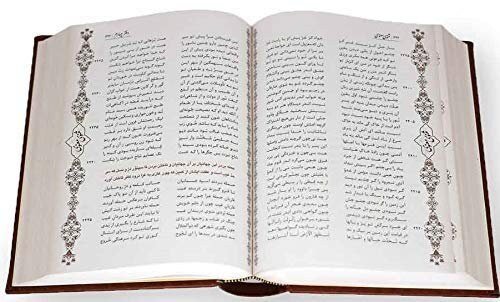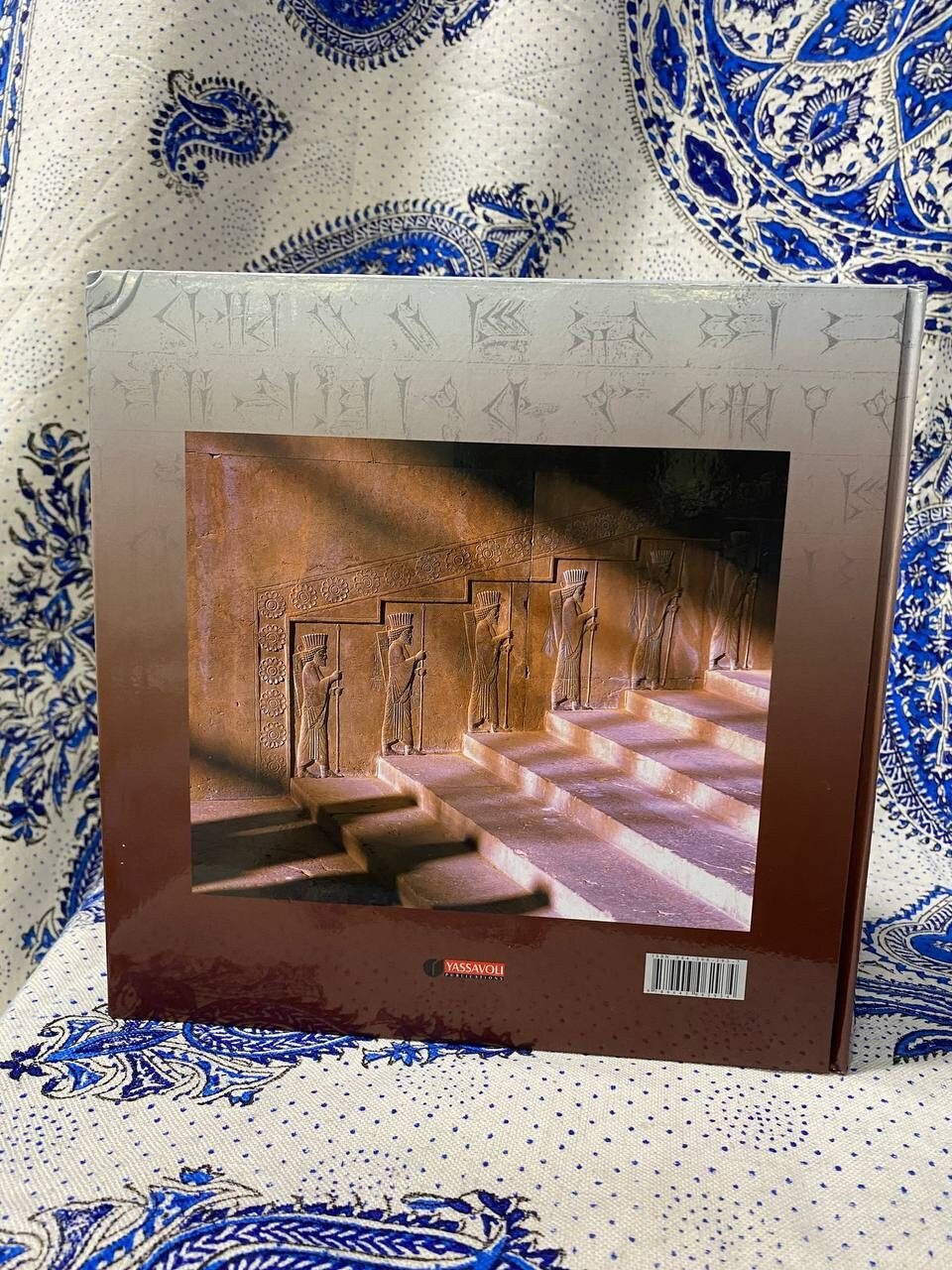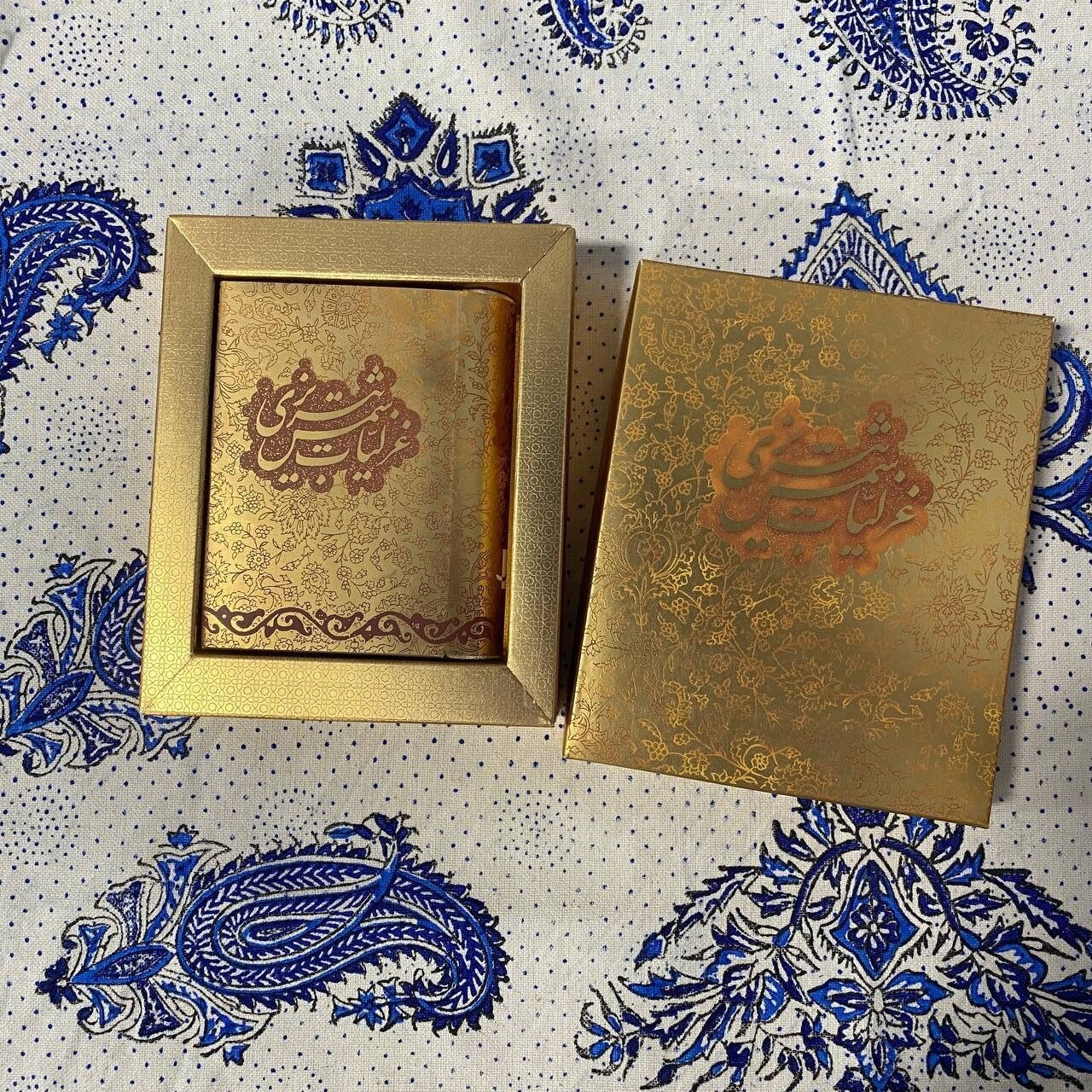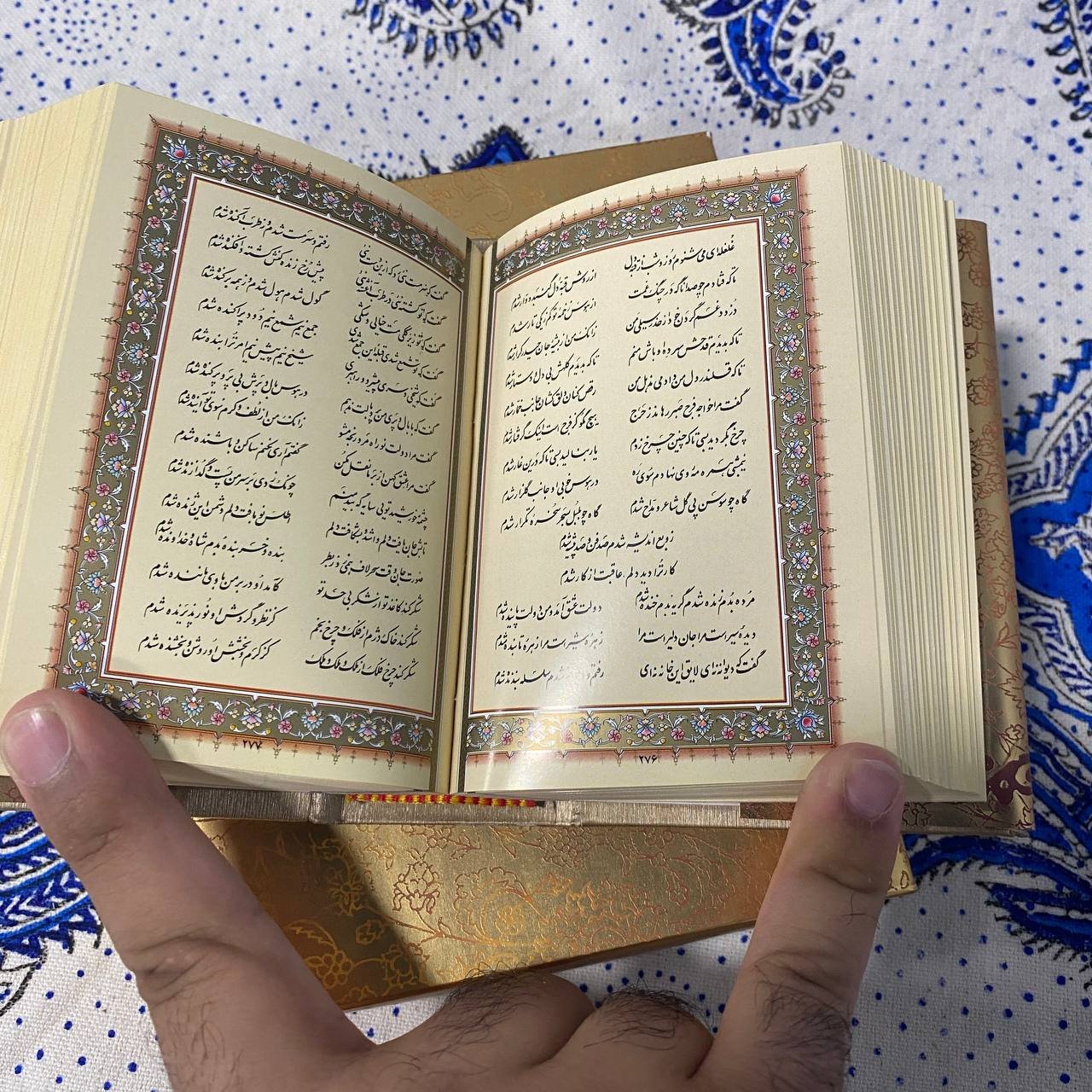 Image 1 of 2
Image 1 of 2

 Image 2 of 2
Image 2 of 2



Persian Tales From Sa'di Persian-English حکایت هایی از دیوان سعدی شیرازی دو زبانه
گزیده ای از داستانهای دیوان سعدی (گلستان و بوستان) با ترجمه انگلیسی آرتور شولی
بومحمد مشرف الدین مصلح بن عبدالله بن مشرّف، متخلص به سعدی زاده ی سال 606 و در گذشته ی سال 690 هجری قمری، شاعر و نویسنده ی بزرگ ایرانی بود. بر اساس استنباط صاحب نظران از آثار خود او به دست آمده است. پدر او، ملازم دربار سعد بن زنگی، اتابک فارس، بود و همزمان به علوم دینی نیز اشتغال داشت. سعدی از کودکی تحت تعلیم و تربیت قرار گرفت و از عشق و آموزه های خردمندانه ی پدر به نیکی یاد می کرد. سعدی در دوازده سالگی پدرش را از دست داد و تحت تکفل پدربزرگ مادری خود، مسعود بن مصلح الفارسی، قرار گرفت. او در دوران کودکی، مقدمات علوم ادبی و شرعی را در شیراز آموخت.دوران کودکی و نوجوانی سعدی همزمان با اتابکی سعد بن زنگی در فارس بود، که با حمله ی مغول به ایران مصادف شد. اوضاع نابسامان ایران در پایان دوران سلطان محمد خوارزمشاه و به ویژه حمله ی سلطان غیاث الدین خوارزمشاه، برادر جلال الدین خوارزمشاه، به شیراز در سال 620 هجری قمری، سعدی را بر آن داشت که در روزگار جوانی شیراز را ترک کند و به بغداد برود.سعدی، تأثیر انکارناپذیری بر زبان فارسی گذاشته است به طوری که شباهت قابل توجهی بین فارسی امروزی و زبان سعدی وجود دارد. آثار او مدت ها در مدارس و مکتب خانه ها به عنوان منبع آموزش زبان و ادبیات فارسی تدریس می شده و بسیاری از ضرب المثل های رایج در زبان فارسی از آثار وی گرفته شده است. او بر خلاف بسیاری از نویسندگان معاصر یا پیش از خود، ساده نویسی و ایجاز را در پیش گرفت و توانست، حتی در زمان حیاتش، شهرت زیادی به دست آورد. آثار سعدی اصطلاحا سهل ممتنع است و در آن ها نکته سنجی و طنز آشکار یا پنهان ملاحظه می شود.
A selection of tales from the collective works of Sa’di’s Gulestan and Boostan (Rose garden and Orchard), along with English translation compiled by Arthur Scholey.
Abu-Muhammad Muslih al-Din Muslih ibn Abdullah ibn Musharraf, known by his pen name Saadi, was a great Iranian poet and writer, born in the year 1210 and passed away in the year 1291/1292. This information is based on the interpretations of his own works by experts.
His father was a courtier of Sa'd ibn Zangi, the Atabeg of Fars, and was also involved in religious sciences. From childhood, Saadi was under proper education and upbringing, and he fondly remembered the love and wise teachings of his father. Saadi lost his father at the age of twelve and was taken under the guardianship of his maternal grandfather, Mas'ud ibn Muslih al-Farsi. During his childhood, he learned the rudiments of literary and religious sciences in Shiraz.
Saadi's childhood and adolescence coincided with the Atabeg rule of Sa'd ibn Zangi in Fars, which was also the time of the Mongol invasion of Iran. The turbulent conditions in Iran at the end of Sultan Muhammad Khwarazmshah's reign, and particularly the attack on Shiraz in the year 1223CE by Sultan Ghiyath al-Din Khwarazmshah, the brother of Jalal al-Din Khwarazmshah, prompted Saadi to leave Shiraz in his youth and travel to Baghdad.
Saadi has an undeniable influence on the Persian language, to the extent that there is a significant similarity between modern Persian and Saadi's language. His works have long been taught in schools and traditional academies as a primary source for learning the Persian language and literature, and many of the common proverbs in Persian are derived from his writings. Unlike many contemporary or preceding writers, he adopted a style of simplicity and brevity (Ijaz) and managed to achieve great fame even during his lifetime. Saadi's works are often described as sahl-e momtane' (seemingly easy but impossible to imitate), and they feature perceptible or hidden subtlety and wit/satire.
گزیده ای از داستانهای دیوان سعدی (گلستان و بوستان) با ترجمه انگلیسی آرتور شولی
بومحمد مشرف الدین مصلح بن عبدالله بن مشرّف، متخلص به سعدی زاده ی سال 606 و در گذشته ی سال 690 هجری قمری، شاعر و نویسنده ی بزرگ ایرانی بود. بر اساس استنباط صاحب نظران از آثار خود او به دست آمده است. پدر او، ملازم دربار سعد بن زنگی، اتابک فارس، بود و همزمان به علوم دینی نیز اشتغال داشت. سعدی از کودکی تحت تعلیم و تربیت قرار گرفت و از عشق و آموزه های خردمندانه ی پدر به نیکی یاد می کرد. سعدی در دوازده سالگی پدرش را از دست داد و تحت تکفل پدربزرگ مادری خود، مسعود بن مصلح الفارسی، قرار گرفت. او در دوران کودکی، مقدمات علوم ادبی و شرعی را در شیراز آموخت.دوران کودکی و نوجوانی سعدی همزمان با اتابکی سعد بن زنگی در فارس بود، که با حمله ی مغول به ایران مصادف شد. اوضاع نابسامان ایران در پایان دوران سلطان محمد خوارزمشاه و به ویژه حمله ی سلطان غیاث الدین خوارزمشاه، برادر جلال الدین خوارزمشاه، به شیراز در سال 620 هجری قمری، سعدی را بر آن داشت که در روزگار جوانی شیراز را ترک کند و به بغداد برود.سعدی، تأثیر انکارناپذیری بر زبان فارسی گذاشته است به طوری که شباهت قابل توجهی بین فارسی امروزی و زبان سعدی وجود دارد. آثار او مدت ها در مدارس و مکتب خانه ها به عنوان منبع آموزش زبان و ادبیات فارسی تدریس می شده و بسیاری از ضرب المثل های رایج در زبان فارسی از آثار وی گرفته شده است. او بر خلاف بسیاری از نویسندگان معاصر یا پیش از خود، ساده نویسی و ایجاز را در پیش گرفت و توانست، حتی در زمان حیاتش، شهرت زیادی به دست آورد. آثار سعدی اصطلاحا سهل ممتنع است و در آن ها نکته سنجی و طنز آشکار یا پنهان ملاحظه می شود.
A selection of tales from the collective works of Sa’di’s Gulestan and Boostan (Rose garden and Orchard), along with English translation compiled by Arthur Scholey.
Abu-Muhammad Muslih al-Din Muslih ibn Abdullah ibn Musharraf, known by his pen name Saadi, was a great Iranian poet and writer, born in the year 1210 and passed away in the year 1291/1292. This information is based on the interpretations of his own works by experts.
His father was a courtier of Sa'd ibn Zangi, the Atabeg of Fars, and was also involved in religious sciences. From childhood, Saadi was under proper education and upbringing, and he fondly remembered the love and wise teachings of his father. Saadi lost his father at the age of twelve and was taken under the guardianship of his maternal grandfather, Mas'ud ibn Muslih al-Farsi. During his childhood, he learned the rudiments of literary and religious sciences in Shiraz.
Saadi's childhood and adolescence coincided with the Atabeg rule of Sa'd ibn Zangi in Fars, which was also the time of the Mongol invasion of Iran. The turbulent conditions in Iran at the end of Sultan Muhammad Khwarazmshah's reign, and particularly the attack on Shiraz in the year 1223CE by Sultan Ghiyath al-Din Khwarazmshah, the brother of Jalal al-Din Khwarazmshah, prompted Saadi to leave Shiraz in his youth and travel to Baghdad.
Saadi has an undeniable influence on the Persian language, to the extent that there is a significant similarity between modern Persian and Saadi's language. His works have long been taught in schools and traditional academies as a primary source for learning the Persian language and literature, and many of the common proverbs in Persian are derived from his writings. Unlike many contemporary or preceding writers, he adopted a style of simplicity and brevity (Ijaz) and managed to achieve great fame even during his lifetime. Saadi's works are often described as sahl-e momtane' (seemingly easy but impossible to imitate), and they feature perceptible or hidden subtlety and wit/satire.



